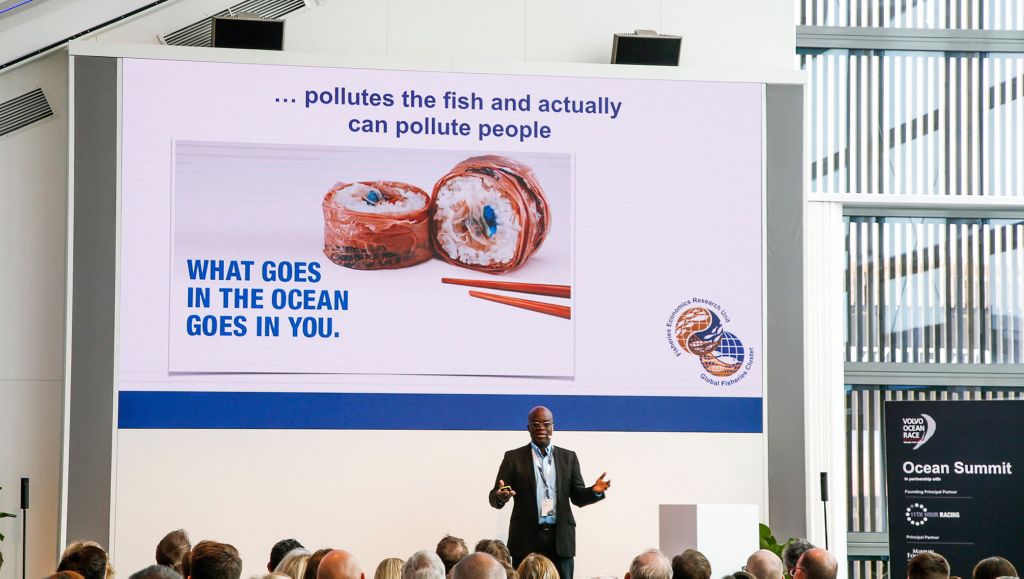Bringing world attention to the crisis of plastic pollution


On 18 May some 300 participants attended the Ocean Summit live in Newport while another 22.000 followed the global live stream. “In the future we know that we will need considerably more transport. We also know that it must be considerably more sustainable. This is why we look at sustainability from an economical but also environmental, social and ethical angle. We are proud to be able to use the Volvo Ocean Race as a global platform to discuss one of the great environmental challenges of our time.” said Volvo Group President and CEO Martin Lundstedt in his opening speech.
Amongst the ocean advocates presenting on stage, Professor Rashid Sumalia, winner of the 2017 Volvo Environment Prize, urged the global audience to take the ocean seriously: “It gives a lot of food and a lot of jobs for people. The ocean also provides us with a lot of security, mainly because it keeps a lot of young people, tens of millions, in big developing countries out of trouble, and therefore, all of us out of trouble”.
One of the distinguished speakers of the day U.S. Senator Sheldon Whitehouse saluted the positive change brought about by Volvo: “The Volvo Ocean Race brings exciting economic activity to Rhode Island and a renewed awareness about how we affect our oceans. I'm grateful to Volvo and the world-class sailing teams for focusing on our need to keep our shorelines and open ocean clear of plastic debris."
Check out all the action from the landmark Summit:
Groundbreaking results from Volvo Ocean Race Science programme
The Ocean Summit in Newport was the opportunity to release groundbreaking results from the Volvo Ocean Race Science programme. Plastic waste has been discovered in the remotest parts of the ocean. Indeed up to 26 tiny particles of plastic per cubic metre of seawater were found close to Point Nemo, the furthest point from land on Earth, where the nearest humans are on the International Space Station. This is the first ever scientific data collected in relatively inaccessible parts of the world. Sadly it shows that how far and wide microplastics have penetrated the oceans even in waters that were considered untouched until now.
The groundbreaking news was reported in over 300 articles and reached a total of 5.5 million views. The breadth of international coverage included The Times and The Guardian in the UK and The New York Times and Boston Globe in the USA.